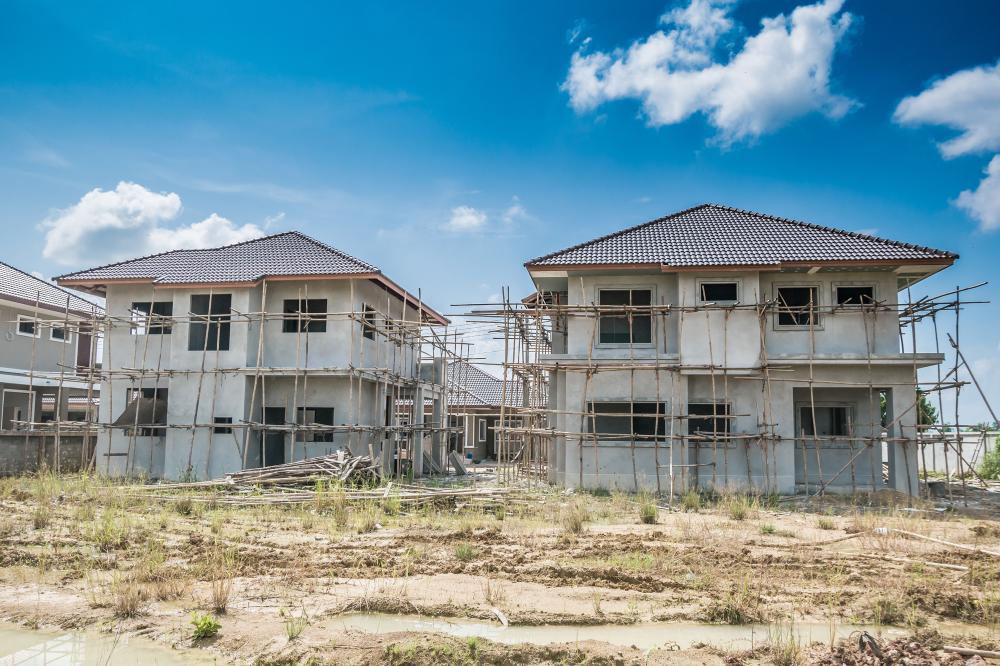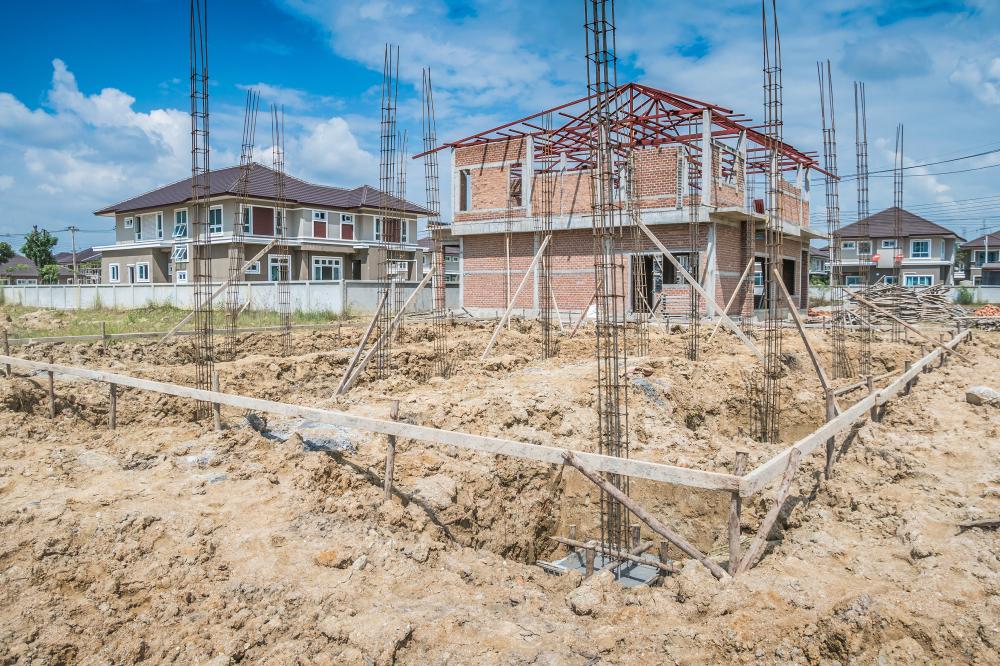
Exploring the Nigerian Real Estate Landscape
The real estate market in Nigeria is a vibrant tapestry woven from diverse threads of residential, commercial, and industrial properties. As someone with over two decades in the field, I’ve watched this landscape transform, akin to the way a sculptor reshapes clay. The cities of Lagos, Abuja, and Port Harcourt stand as bustling epicenters of growth, each with unique offerings and challenges. For investors and homebuyers alike, understanding the distinct advantages of each area is crucial.
Lagos, for instance, is often regarded as the New York City of Africa. Its growing status as a financial hub makes it a top choice for commercial real estate. On the other hand, Abuja provides a more serene environment, making it ideal for residential developments. Meanwhile, Port Harcourt’s industrial strength underpins its reputation as the oil capital of Nigeria, presenting opportunities for industrial real estate growth. This dynamic interplay creates an ever-evolving mosaic of opportunities for anyone looking to explore real estate in Nigeria.
What are the Biggest Challenges in Nigerian Real Estate?
The path to real estate success in Nigeria is often fraught with challenges that may deter the faint-hearted. Chief among these is the issue of land tenure. The Land Use Act of 1978, intended to streamline land ownership, paradoxically complicates it. Navigating this legal labyrinth requires patience and precision, akin to a chess game where each move must be carefully calculated.
Corruption also casts a long shadow over real estate transactions. It’s not uncommon for buyers to encounter dubious agents or sellers, necessitating due diligence. When dealing with these challenges, engaging with established firms like Egomili Interiors becomes invaluable. Our expertise ensures that clients avoid common pitfalls and proceed with confidence.
Additionally, infrastructural deficits plague many urban areas. While some regions soar with ultra-modern developments, others grapple with poor roads and erratic power supply. These inconsistencies demand a discerning eye to identify genuine value amidst the noise. Nevertheless, these challenges have not dampened the allure of real estate in Nigeria, a testament to its enduring potential.
Opportunities Abound: Investing in Nigerian Real Estate
Despite its challenges, the Nigerian real estate market remains a goldmine for investors. In my professional journey, I’ve observed that real estate in Nigeria offers significant returns on investment, particularly in rapidly developing urban centers. These opportunities can be likened to hidden gems waiting to be discovered by those willing to dig deep.
Emerging trends include the rise of mixed-use developments, combining residential and commercial spaces to create vibrant communities. This concept caters to the growing demand for convenience and lifestyle-centric living. Moreover, technology innovation is gradually seeping into the sector, with proptech solutions streamlining property management and transactions.
The government’s commitment to addressing housing deficits through initiatives like the National Housing Fund also presents fertile ground for investment. As these initiatives gain momentum, they will unlock further opportunities for stakeholders. Undoubtedly, investing in real estate in Nigeria offers promising rewards for those who navigate the market astutely.
Additionally, the continuous urbanization and population growth further bolster the demand for housing and commercial spaces, cementing the country’s position as a real estate hotspot on the African continent.
How to Buy Property in Nigeria: A Step-by-Step Guide
Purchasing a property can be a thrilling experience, yet it demands meticulous attention to detail. To streamline this process for potential buyers, I’ve distilled my expertise into a concise roadmap:
- Research: Begin by identifying the location that aligns with your goals, whether it’s for living, renting, or investment purposes.
- Budget Planning: Analyze your financial capabilities and explore financing options, such as mortgages or co-investor partnerships.
- Engage Professionals: Enlist the services of reputable real estate agents and legal experts to guide you through the intricacies of the transaction.
- Property Inspection: Conduct thorough inspections to ensure the property meets your expectations and is worth the investment.
- Documentation: Verify all necessary documents, including the Certificate of Occupancy and Governor’s Consent, to mitigate legal risks.
- Finalizing the Purchase: Once satisfied, proceed with the payment and secure your ownership by obtaining the Deed of Assignment.
This structured approach, honed through years of experience, ensures a seamless purchase journey and safeguards against potential pitfalls.
The Future of Real Estate in Nigeria: What to Expect?
What lies ahead for real estate in Nigeria? As we gaze into the future, there are ample reasons to be optimistic. An increased government focus on improving infrastructure and housing is set to reshape the landscape. Initiatives aimed at reducing bureaucracy in the sector will further enhance transparency and attract more foreign investments.
I foresee a stronger integration of sustainable practices in building designs, driven by rising environmental consciousness. These “green” constructions not only lower the carbon footprint but also enhance livability, making them increasingly desirable.
- Continued urbanization and demographic shifts fueling demand
- Adoption of smart technologies transforming property management
- Increased collaboration between private and public sectors
Indeed, the outlook for real estate in Nigeria is akin to a horizon at dawn, full of promise and anticipation. For investors and buyers willing to embrace the coming trends, the future holds vast potential.

Can a foreigner buy a house in Nigeria?
Yes, foreigners can buy property in Nigeria, but there are some complexities involved. The Land Use Act allows for foreign ownership of land, primarily through lease arrangements rather than outright purchase. Typically, a foreigner can obtain a 99-year lease. This sounds like a mouthful, but think of it like holding the long-term lease to an apartment: you have significant control over the property, though the ultimate ownership rests with the state.
While it can initially seem daunting with the legal intricacies, working with a reputable firm like Egomili Interiors can make this process much smoother. We ensure all the legal requirements are met and guide you step by step. When embarking on this journey, it’s vital to engage legal experts and real estate professionals to navigate the nuances of local regulations successfully. Remember, thorough research and due diligence are critical. If you’re curious about a specific area or have questions about the process, reach out to us!
Is it good to invest in real estate in Nigeria?
Absolutely, investing in real estate in Nigeria can be quite lucrative, provided you navigate the landscape wisely. The country’s continuous urbanization and population growth create a steady demand for both residential and commercial properties. Cities like Lagos and Abuja are akin to hidden goldmines, with returns on investments often exceeding expectations.
Consider this scenario: investing in a mixed-use development in Lagos not only appreciates in value but also provides rental income from commercial units. Yet, the challenges shouldn’t be underestimated, from legal hurdles to navigating infrastructural issues. Partnering with Egomili Interiors ensures you’re equipped with the knowledge and strategies to make informed decisions. We’re here to help you uncover these hidden real estate gems and strategically position your investments for success. Are there specific areas you’re interested in exploring? Let’s discuss your options!
How much money do I need to live comfortably in Nigeria?
Living comfortably in Nigeria varies greatly based on lifestyle and location. Major cities like Lagos and Abuja demand higher budgets due to higher living costs, similar to living in prime cities elsewhere. On average, maintaining a comfortable lifestyle might require between ₦300,000 to ₦500,000 monthly. This covers housing, utilities, food, and leisure activities.
If you opt for a lifestyle that includes more luxury or expatriate-style accommodations, the costs rise significantly. However, utilizing efficient budgeting and exploring affordable housing solutions can alleviate the expense. Egomili Interiors can guide you in finding a property that matches both your lifestyle and financial goals. Interested in exploring housing options within a specific budget? Let’s talk specifics!
How much do I need to start real estate in Nigeria?
Starting a real estate venture in Nigeria doesn’t require an enormous budget, but it’s crucial to start with a well-thought-out strategy. With as little as ₦1,000,000 to ₦5,000,000, you could begin flipping properties or investing in small real estate projects. However, larger developments or investments in prime locations would require significantly more capital.
For instance, investing in an up-and-coming neighborhood might allow you to buy low and sell high as the area develops. Egomili Interiors can help identify the best opportunities tailored to your budget and long-term visions. Our expertise ensures you start on the right foot, minimizing risks and maximizing potential returns. Are you considering a specific type of investment? Let’s explore how to turn your real estate ambitions into reality!
What are the key challenges in Nigerian real estate?
Navigating real estate in Nigeria certainly comes with its challenges, with land tenure being a notable hurdle due to the complexities of the Land Use Act of 1978. This legal framework makes land acquisition a bit tricky if you’re not familiar with it. Additionally, corruption and infrastructural deficits often pose significant barriers.
Think of it as trying to sail through a storm: having the right crew and equipment is essential. Working with firms like Egomili Interiors can help mitigate these risks thanks to our deep understanding of the market and legal landscape. Our team helps ensure transparency and integrity in your transactions and guides you through any bureaucratic maze. Curious about how we can assist you further? Let’s chat about your specific concerns!
What trends will shape the future of Nigerian real estate?
The future of Nigerian real estate is as promising as it is dynamic. We’re seeing a shift toward sustainable and ‘green’ building practices, reflecting a growing environmental consciousness. Moreover, smart technologies are slowly transforming property management, making processes more efficient and transparent.
Imagine living in a home where energy efficiency meets modern connectivity, enhancing your lifestyle while lowering environmental impact. At Egomili Interiors, we keep our eyes on these trends to help our clients stay ahead of the curve and make informed decisions. Whether it’s sustainable design or tech-driven innovations, we ensure you are well-equipped for future developments. Interested in discovering more about these exciting trends? Reach out to us, and let’s envision your future together!
Resources
- Nigeria High Commission, UK – The official website of the Nigeria High Commission in the United Kingdom.
- National Bureau of Statistics, Nigeria – Providing statistical information to assist decision making, policy formulation, and monitoring and evaluation of policies.
- Federal Mortgage Bank of Nigeria – Working towards increasing access to affordable housing finance for Nigerians.
- Nigeria Housing Network – Connecting professionals and stakeholders in the housing and real estate sector in Nigeria.